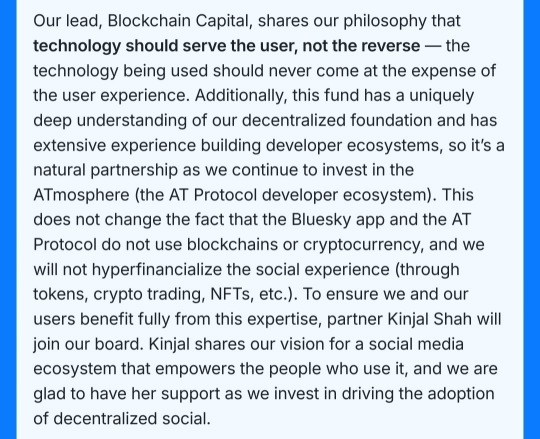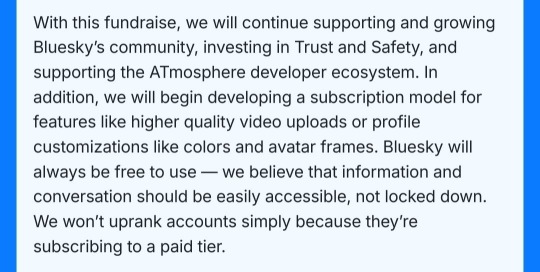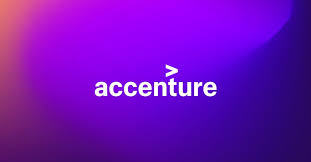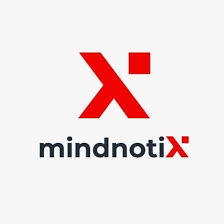#End to end blockchain development service
Explore tagged Tumblr posts
Text
Blockchain's Impact on B2B Retail

After the outbreak of covid, everything turned online. The world of eCommerce has witnessed tremendous growth in recent years. With the adoption of omnichannel retail and the inclusion of AR/VR and IoT technologies, retail has undergone many transformations. However, adopting new technologies has also highlighted some underlying challenges that need immediate attention, such as data security, frictionless payments, and overproduction.
What is more? Let us dive deeper into this insightful blog and explore how Blockchain technology can revolutionize the retail industry and pave the way for a profitable and successful B2B retail domain.
Streamlining Stakeholders With The Blockchain Technology
Handling business operations in an eCommerce market that receives products from multiple locations can be challenging. Streamlining multiple stakeholders, such as logistics and payment partners, is not an easy task. Blockchain technology can address these issues, and the benefits are manifold.
Are you an eCommerce business looking for a professional team to assist you in integrating blockchain? Here we are; connect with us for the finest enterprise blockchain development services.
Lower Tax Liabilities With Blockchain Technology
The US Supreme Court, in 2018, cited figures that indicated the lack of online sales tax was costing them over $44 billion annually. Following this statement, several states began imposing felony charges for not paying sales tax of more than $10,000. With Blockchain, businesses can transmit records of their sale to the tax authorities and save themselves from any tax liabilities.
Fast And Audited B2B Interactions
The movement of information among third and fourth parties involved in a B2B eCommerce landscape can complicate transactions, leading to delayed supplier payments and disrupted reconciliation processes. Blockchain’s immutable factor can result in fast, permission, and audited B2B interactions between sellers, buyers, and logistics providers.
So why wait? Obtain customizable blockchain development services from the top blockchain development company at affordable prices.
Product Provenance Check
A product provenance check is a must-have for the B2B sector with multiple stakeholders. Through Blockchain, stakeholders can check the product’s origin, thus crossing all instances of getting their hands on a counterfeit product.
The Role of Smart Contracts in B2B eCommerce
In a B2B eCommerce setup, the blockchain and B2B payments mix has multiple benefits, such as fraud prevention, expedited settlements, and frictionless payments. The use of smart contracts ensures that the agreed-upon terms and conditions of the agreement are not violated, thus providing a transparent and secure platform for businesses to interact.
Over To You, Gentlemen
The retail industry has the potential to benefit from the adoption of Blockchain technology, and the future looks bright. According to a recent IDC report, global spending on Blockchain solutions is projected to be nearly $19 billion in 2024, with retail being one of the largest industries for Blockchain spending. Blockchain technology can revolutionize the retail industry and pave the way for a profitable B2B retail domain. With Blockchain technology, retailers can expect lower tax liabilities, fast and audited B2B interactions, and fraud prevention, among other benefits. Do you want to incorporate blockchain technology into your eCommerce business? Try the leading blockchain consulting company and explore the benefits of blockchain.
#blockchain development#blockchain solutions#enterprise blockchain development#blockchain in retail industry#Blockchain Development Services#Blockchain Development Company#Blockchain App Development Services#enterprise blockchain#enterprise blockchain development company#enterprise blockchain development services#custom blockchain development#End to end blockchain development service#End to end blockchain development Company#End-to-End Blockchain Development#Transparency#Traceability#Customer Data#Decentralization#Blockchain#Retail#Supply Chain#Security#Retail blockchain
0 notes
Text
From Product Provenance To Smart Contracts- The Benefits Of Blockchain In B2B Retail
After the outbreak of covid, everything turned online. The world of eCommerce has witnessed tremendous growth in recent years. With the adoption of omnichannel retail and the inclusion of AR/VR and IoT technologies, retail has undergone many transformations. However, adopting new technologies has also highlighted some underlying challenges that need immediate attention, such as data security,…

View On WordPress
#blockchain#blockchain app development services#blockchain development#Blockchain Development Company#Blockchain development services#blockchain in retail industry#blockchain solutions#custom blockchain development#Customer Data#Decentralization#End to end blockchain development Company#End to end blockchain development service#End-to-End Blockchain Development#Enterprise blockchain#enterprise blockchain development#enterprise blockchain development company#Enterprise blockchain development services#Retail#Retail blockchain#Security#Supply Chain#Traceability#transparency
0 notes
Text
Cybercriminals are abusing Google’s infrastructure, creating emails that appear to come from Google in order to persuade people into handing over their Google account credentials. This attack, first flagged by Nick Johnson, the lead developer of the Ethereum Name Service (ENS), a blockchain equivalent of the popular internet naming convention known as the Domain Name System (DNS). Nick received a very official looking security alert about a subpoena allegedly issued to Google by law enforcement to information contained in Nick’s Google account. A URL in the email pointed Nick to a sites.google.com page that looked like an exact copy of the official Google support portal.
As a computer savvy person, Nick spotted that the official site should have been hosted on accounts.google.com and not sites.google.com. The difference is that anyone with a Google account can create a website on sites.google.com. And that is exactly what the cybercriminals did. Attackers increasingly use Google Sites to host phishing pages because the domain appears trustworthy to most users and can bypass many security filters. One of those filters is DKIM (DomainKeys Identified Mail), an email authentication protocol that allows the sending server to attach a digital signature to an email. If the target clicked either “Upload additional documents” or “View case”, they were redirected to an exact copy of the Google sign-in page designed to steal their login credentials. Your Google credentials are coveted prey, because they give access to core Google services like Gmail, Google Drive, Google Photos, Google Calendar, Google Contacts, Google Maps, Google Play, and YouTube, but also any third-party apps and services you have chosen to log in with your Google account. The signs to recognize this scam are the pages hosted at sites.google.com which should have been support.google.com and accounts.google.com and the sender address in the email header. Although it was signed by accounts.google.com, it was emailed by another address. If a person had all these accounts compromised in one go, this could easily lead to identity theft.
How to avoid scams like this
Don’t follow links in unsolicited emails or on unexpected websites.
Carefully look at the email headers when you receive an unexpected mail.
Verify the legitimacy of such emails through another, independent method.
Don’t use your Google account (or Facebook for that matter) to log in at other sites and services. Instead create an account on the service itself.
Technical details Analyzing the URL used in the attack on Nick, (https://sites.google.com[/]u/17918456/d/1W4M_jFajsC8YKeRJn6tt_b1Ja9Puh6_v/edit) where /u/17918456/ is a user or account identifier and /d/1W4M_jFajsC8YKeRJn6tt_b1Ja9Puh6_v/ identifies the exact page, the /edit part stands out like a sore thumb. DKIM-signed messages keep the signature during replays as long as the body remains unchanged. So if a malicious actor gets access to a previously legitimate DKIM-signed email, they can resend that exact message at any time, and it will still pass authentication. So, what the cybercriminals did was: Set up a Gmail account starting with me@ so the visible email would look as if it was addressed to “me.” Register an OAuth app and set the app name to match the phishing link Grant the OAuth app access to their Google account which triggers a legitimate security warning from [email protected] This alert has a valid DKIM signature, with the content of the phishing email embedded in the body as the app name. Forward the message untouched which keeps the DKIM signature valid. Creating the application containing the entire text of the phishing message for its name, and preparing the landing page and fake login site may seem a lot of work. But once the criminals have completed the initial work, the procedure is easy enough to repeat once a page gets reported, which is not easy on sites.google.com. Nick submitted a bug report to Google about this. Google originally closed the report as ‘Working as Intended,’ but later Google got back to him and said it had reconsidered the matter and it will fix the OAuth bug.
8K notes
·
View notes
Text
During the 2008 recession, my aunt lost her job. Her, her partner, and my three cousins moved across the country to stay with us while they got back on their feet. My house turned from a family of four to a family of nine overnight, complete with three dogs and five cats between us.
It took a few years for them to get a place of their own, but after a few rentals and apartments, they now own a split level ranch in a town nearby. I’ve lost track of how many coworkers and friends have stayed with them when they were in a tight spot. A mother and son getting out of an abusive relationship, a divorcee trying to stay local for his kids while they work out a custody agreement, you name it. My aunt and uncle knew first hand what that kindness meant, and always find space for someone who needed it, the way my parents had for them.
That same aunt and uncle visited me in [redacted] city last year. They are prolific drinkers, so we spent most of the day bar hopping. As we wandered the city, any time we passed a homeless person, my uncle would pull out a fresh cigarette and ask them if they had a light. Regardless of if they had a lighter on hand or not, he offered them a few bucks in exchange, which he explained to me after was because he felt it would be easier for them to accept in exchange for a service, no matter how small.
I work for a company that produces a lot of fabric waste. Every few weeks, I bring two big black trash bags full of discarded material over to a woman who works down the hall. She distributes them to local churches, quilting clubs, and teachers who can use them for crafts. She’s currently in the process of working with our building to set up a recycling program for the smaller pieces of fabric that are harder to find use for.
One of my best friends gives monthly donations to four or five local organizations. She’s fortunate enough to have a tech job that gives her a good salary, and she knows that a recurring donation is more valuable to a non-profit because they can rely on that money month after month, and can plan ways to stretch that dollar for maximum impact. One of those organizations is a native plant trust, and once she’s out of her apartment complex and in a home with a yard, she has plans to convert it into a haven of local flora.
My partner works for a company that is working to help regulate crypto and hold the current bad actors in the space accountable for their actions. We unfortunately live in a time where technology develops far too fast for bureaucracy to keep up with, but just because people use a technology for ill gain doesn’t mean the technology itself is bad. The blockchain is something that she finds fascinating and powerful, and she is using her degree and her expertise to turn it into a tool for good.
I knew someone who always had a bag of treats in their purse, on the odd chance they came across a stray cat or dog, they had something to offer them.
I follow artists who post about every local election they know of, because they know their platform gives them more reach than the average person, and that they can leverage that platform to encourage people to vote in elections that get less attention, but in many ways have more impact on the direction our country is going to go.
All of this to say, there’s more than one way to do good in the world. Social media leads us to believe that the loudest, the most vocal, the most prolific poster is the most virtuous, but they are only a piece of the puzzle. (And if virtue for virtues sake is your end goal, you’ve already lost, but that’s a different post). Community is built of people leveraging their privileges to help those without them. We need people doing all of those things and more, because no individual can or should do all of it. You would be stretched too thin, your efforts valiant, but less effective in your ambition.
None of this is to encourage inaction. Identify your unique strengths, skills, and privileges, and put them to use. Determine what causes are important to you, and commit to doing what you can to help them. Collective action is how change is made, but don’t forget that we need diversity in actions taken.
22K notes
·
View notes
Note
Forgive me if I'm mistaking you for another person, but I remember you speaking at multiple points on the unsustainability of free social media services (I think especially in response to the cohost collapse?), and I'm curious on what your thoughts on bluesky are so far. I'm not an expert on the subject, but from what I've read previously it seemed like they were on track to be financially sustainable, but I don't know if the recent floods of users has thrown those projections off. Sorry if I'm mixing you up with someone else on my timeline, in that case just ignore me.
bluesky will almost certainly follow the same trajectory of monetisation => bloat => enshittification => decline as every other major platform built on venture capital and user hoarding. it's a terrible model that only works in the short term as a mirage for attracting funding and making founders look good for a year or two before they sell.
you can see the same effect in the decline of all the subscription box services that came into vogue just before covid: they feel great to use for as long as the initial injection of venture funding lasts, because the purpose of that funding at that stage is to attract users and impress the next round of funders with how pleasant/intuitive/efficient/ethical/good value the service is. that's the stage where they're handing out freebies and bowling over influencers, and every ingredient in the box is fresh and high quality and locally sourced. wow what a good deal, what a great system!!! why hasn't anyone done this before? the answer is because it's unsustainable by design. they rack up good reviews, sign on a billion new users, attract new funding from a bunch of much more credulous investors, and then gut all of the expensive parts. portions get smaller, ingredients get worse, packaging gets flimsier, prices go up, freebies turn into "5% off your first 9 boxes when you invite 3 friends", and customer service vanishes.
with social media (and platforms like discord) the logic is the same, it's just a little less glaringly obvious to the end user because they're not coming home to leaking packages of rancid chicken on the doorstep. bluesky has an advantage over tiny operations like cohost because it was founded by a billionaire making a point for the sake of his own image. it got a really significant chunk of startup funding, and the owner had existing connections and rep in the space to attract more. That's why it has survived the goldrush period, why it still feels good to use, and why users who have been burned so many times before are finally accepting it as a stable, reliable option. It's still in its venture capital honeymoon phase where the only thing worth spending money on is making the service attractive to users.
What I expect we will see next, with another mass influx of users from twitter and new funding from a rogue's gallery of tech venture sickos led by Blockchain Capital is a strong ramp up into monetising that userbase. They've already been pretty forthright about how they plan to do this, and I think it's a solid roadmap of how Bluesky will bloat and decay over the next few years:

this is a huge lol. don't worry, we're not going to hyperfinancialize the social experience through NFTs. the thing even crypto freaks started feigning amnesia about a year ago. real "our health conscious sodas are 100% arsenic free" messaging here. They know perfectly well that rubes users are suspicious of their typical 5 dimensional tech finance chess games and are patting our hands about last week's bogeymen so nobody worries too hard about whatever 'decentralised developer ecosystem' just happens to be helmed by a bunch of crypto guys. this definitely means something good and based and not a google-like single sign on user data harvesting operation.

This is the same shit that's currently rotting the floorboards of discord. Bluntly, there is no way to run a platform on this scale without gating functionality behind paid services. Discord has been squeezing free-tier file uploads and call quality etc. down steadily and cranking up subscription costs over the last year or two, throwing in chaff like animated avatar frames to try and justify the user cost. They're also doing the same misdirection thing again here, pointing to Thing We All Hate to deflect from thing we might not like very much when they do it. Booo elon booo we all hate elon!!! wait how do we feel about subscription models again,

watch out for this to kill porn on bsky like it has killed porn on every other social platform 👍 boooo we hate elon boooo stupid idiot and his 'everything app' booooo wait why do you need my tax information, what's that about mastercard,
Look, we are all aware social media is a money pit. Let's not forget dorsey was looking to sell twitter in the first place, long before elon's very public plunge into total online derangement. Subscription services are not going to plug the hole, so we are gradually going to see more and more spaghetti thrown at the wall while early funders shuffle cards and do their pyramid scheme bit bringing in stupider and stupider investments. this is the window in which bluesky will be temporarily worth using for us, for the idiot public, the poorly rendered crowd jpegs in the background of their venture capital MOBA. it's in their interests to slow and pad the decline as much as possible, because that is how they get maximally paid.
Given the scale of the money involved, and dorsey's weird ego investment, I think bluesky will probably manage a controlled drift for a good few years before it gets really bloated and painful. and by then we will all be so used to the *checks notes* decentralised developer ecosystem that we'll just be posting through it, watching another generation of columnists call another collapsing platform 'their beloved hellsite' and passing around that meme about not getting out of our chairs no sir until idk we all get on a fediverse neurolink alternative to stick it to the elongated muskrat and our brains pop peacefully in our sleep. which I guess is the closest thing to viability any social media platform can achieve.
anyway diogenes the cynic is also on bluesky
488 notes
·
View notes
Text
How to Develop a P2P Crypto Exchange and How Much Does It Cost?
With the rise of cryptocurrencies, Peer-to-Peer (P2P) crypto exchanges have become a popular choice for users who want to trade digital assets directly with others. These decentralized platforms offer a more secure, private, and cost-effective way to buy and sell cryptocurrencies. If you’re considering building your own P2P crypto exchange, this blog will guide you through the development process and give you an idea of how much it costs to create such a platform.
What is a P2P Crypto Exchange?
A P2P crypto exchange is a decentralized platform that allows users to buy and sell cryptocurrencies directly with each other without relying on a central authority. These exchanges connect buyers and sellers through listings, and transactions are often protected by escrow services to ensure fairness and security. P2P exchanges typically offer lower fees, more privacy, and a variety of payment methods, making them an attractive alternative to traditional centralized exchanges.
Steps to Develop a P2P Crypto Exchange
Developing a P2P crypto exchange involves several key steps. Here’s a breakdown of the process:
1. Define Your Business Model
Before starting the development, it’s important to define the business model of your P2P exchange. You’ll need to decide on key factors like:
Currency Support: Which cryptocurrencies will your exchange support (e.g., Bitcoin, Ethereum, stablecoins)?
Payment Methods: What types of payment methods will be allowed (bank transfer, PayPal, cash, etc.)?
Fees: Will you charge a flat fee per transaction, a percentage-based fee, or a combination of both?
User Verification: Will your platform require Know-Your-Customer (KYC) verification?
2. Choose the Right Technology Stack
Building a P2P crypto exchange requires selecting the right technology stack. The key components include:
Backend Development: You'll need a backend to handle user registrations, transaction processing, security protocols, and matching buy/sell orders. Technologies like Node.js, Ruby on Rails, or Django are commonly used.
Frontend Development: The user interface (UI) must be intuitive, secure, and responsive. HTML, CSS, JavaScript, and React or Angular are popular choices for frontend development.
Blockchain Integration: Integrating blockchain technology to support cryptocurrency transactions is essential. This could involve setting up APIs for blockchain interaction or using open-source solutions like Ethereum or Binance Smart Chain (BSC).
Escrow System: An escrow system is crucial to protect both buyers and sellers during transactions. This involves coding or integrating a reliable escrow service that holds cryptocurrency until both parties confirm the transaction.
3. Develop Core Features
Key features to develop for your P2P exchange include:
User Registration and Authentication: Secure login options such as two-factor authentication (2FA) and multi-signature wallets.
Matching Engine: This feature matches buyers and sellers based on their criteria (e.g., price, payment method).
Escrow System: An escrow mechanism holds funds in a secure wallet until both parties confirm the transaction is complete.
Payment Gateway Integration: You’ll need to integrate payment gateways for fiat transactions (e.g., bank transfers, PayPal).
Dispute Resolution System: Provide a system where users can report issues, and a support team or automated process can resolve disputes.
Reputation System: Implement a feedback system where users can rate each other based on their transaction experience.
4. Security Measures
Security is critical when building any crypto exchange. Some essential security features include:
End-to-End Encryption: Ensure all user data and transactions are encrypted to protect sensitive information.
Cold Storage for Funds: Store the majority of the platform's cryptocurrency holdings in cold wallets to protect them from hacking attempts.
Anti-Fraud Measures: Implement mechanisms to detect fraudulent activity, such as IP tracking, behavior analysis, and AI-powered fraud detection.
Regulatory Compliance: Ensure your platform complies with global regulatory requirements like KYC and AML (Anti-Money Laundering) protocols.
5. Testing and Launch
After developing the platform, it’s essential to test it thoroughly. Perform both manual and automated testing to ensure all features are functioning properly, the platform is secure, and there are no vulnerabilities. This includes:
Unit testing
Load testing
Penetration testing
User acceptance testing (UAT)
Once testing is complete, you can launch the platform.
How Much Does It Cost to Develop a P2P Crypto Exchange?
The cost of developing a P2P crypto exchange depends on several factors, including the complexity of the platform, the technology stack, and the development team you hire. Here’s a general cost breakdown:
1. Development Team Cost
You can either hire an in-house development team or outsource the project to a blockchain development company. Here’s an estimated cost for each:
In-house Team: Hiring in-house developers can be more expensive, with costs ranging from $50,000 to $150,000+ per developer annually, depending on location.
Outsourcing: Outsourcing to a specialized blockchain development company can be more cost-effective, with prices ranging from $30,000 to $100,000 for a full-fledged P2P exchange platform, depending on the complexity and features.
2. Platform Design and UI/UX
The design of the platform is crucial for user experience and security. Professional UI/UX design can cost anywhere from $5,000 to $20,000 depending on the design complexity and features.
3. Blockchain Integration
Integrating blockchain networks (like Bitcoin, Ethereum, Binance Smart Chain, etc.) can be costly, with development costs ranging from $10,000 to $30,000 or more, depending on the blockchain chosen and the integration complexity.
4. Security and Compliance
Security is a critical component for a P2P exchange. Security audits, KYC/AML implementation, and regulatory compliance measures can add $10,000 to $50,000 to the total development cost.
5. Maintenance and Updates
Post-launch maintenance and updates (bug fixes, feature enhancements, etc.) typically cost about 15-20% of the initial development cost annually.
Total Estimated Cost
Basic Platform: $30,000 to $50,000
Advanced Platform: $70,000 to $150,000+
Conclusion
Developing a P2P crypto exchange requires careful planning, secure development, and a focus on providing a seamless user experience. The cost of developing a P2P exchange varies depending on factors like platform complexity, team, and security measures, but on average, it can range from $30,000 to $150,000+.
If you're looking to launch your own P2P crypto exchange, it's essential to partner with a reliable blockchain development company to ensure the project’s success and long-term sustainability. By focusing on security, user experience, and regulatory compliance, you can create a platform that meets the growing demand for decentralized crypto trading.
Feel free to adjust or expand on specific details to better suit your target audience!
2 notes
·
View notes
Text
The 6 Roles of Blockchain Technology in Pharma’s Future

Introduction
The pharmaceutical industry is undergoing a digital transformation, and blockchain technology is at the forefront of this revolution. Traditional challenges such as counterfeit drugs, regulatory inefficiencies, clinical trial fraud, and data breaches have long plagued the sector. Blockchain, with its decentralized and tamper-proof nature, offers solutions that can enhance security, transparency, and operational efficiency.
As blockchain development service providers continue refining solutions for pharma, companies are beginning to adopt this technology to streamline supply chains, enhance patient data security, and automate compliance. This article explores six critical roles that blockchain will play in shaping the future of the pharmaceutical industry.
1. Securing the Pharmaceutical Supply Chain
Eliminating Counterfeit Drugs
Counterfeit medications pose a significant threat to global health, contributing to thousands of deaths annually. The World Health Organization (WHO) estimates that one in ten medical products in low- and middle-income countries is substandard or falsified.
End-to-End Traceability
Blockchain technology enables a fully transparent supply chain, where each transaction is recorded in an immutable ledger. This ensures that every stakeholder—from manufacturers to pharmacists—can verify a drug’s authenticity in real-time.
Real-Time Verification
With blockchain-based tracking, patients, healthcare providers, and regulatory agencies can instantly verify the legitimacy of medications. Leading pharmaceutical companies like Pfizer and Roche are already exploring blockchain to secure drug distribution and eliminate counterfeit products from the market.
2. Enhancing Drug Safety and Regulatory Compliance
Immutable Drug Records
Regulatory compliance in the pharmaceutical industry requires strict adherence to safety protocols, but traditional record-keeping methods are prone to errors and fraud. Blockchain ensures that all drug-related data, including batch numbers, manufacturing dates, and storage conditions, are permanently recorded and cannot be altered.
Automated Compliance Monitoring
Smart contracts—self-executing digital agreements stored on the blockchain—can automate compliance checks, ensuring that drugs meet safety regulations before they reach the market. This reduces human error and enhances accountability.
Rapid Recalls and Alerts
When safety concerns arise, blockchain enables instant notifications and targeted recalls. Instead of relying on slow, paper-based tracking systems, companies can pinpoint affected batches within seconds, reducing risks to patients and minimizing financial losses.
3. Revolutionizing Clinical Trials and Research
Data Integrity and Security
Clinical trials are the foundation of medical innovation, but they are often plagued by fraud and inefficiencies. Blockchain ensures that trial data is immutable, preventing manipulation or selective reporting. This guarantees transparency and fosters trust in research findings.
Streamlined Patient Consent
Informed consent is a crucial aspect of clinical trials, yet traditional methods often lack security and efficiency. Blockchain-based smart contracts can automate consent management, ensuring that patients have full control over their participation while reducing administrative burdens for researchers.
Faster Drug Development
By securely sharing trial data among researchers, pharmaceutical companies, and regulatory agencies, blockchain accelerates the drug development process. Faster access to verified data can lead to quicker approvals, ultimately bringing life-saving medications to patients sooner.
4. Enabling Secure and Efficient
Automated Payments with Smart Contracts
The pharmaceutical industry involves complex financial transactions between manufacturers, insurers, healthcare providers, and distributors. Blockchain simplifies these transactions by using smart contracts to automate payments based on pre-set conditions.
Reduced Fraud and Corruption
Traditional financial systems in the pharma sector are susceptible to fraud and inefficiencies. Blockchain’s decentralized ledger eliminates intermediaries, ensuring transparent and corruption-free transactions.
DeFi in Pharma
Decentralized finance (DeFi) applications powered by blockchain could revolutionize pharmaceutical funding. Companies can leverage tokenized assets to raise funds for research and development, bypassing traditional banking limitations.
5. Improving Patient Data Security
Decentralized Electronic Health Records (EHR)
Patient data is often stored in centralized databases, making it vulnerable to cyberattacks. Blockchain provides a decentralized and encrypted framework where patients control their health records, granting access only to authorized healthcare providers.
Seamless Data Sharing
Healthcare providers often struggle with interoperability issues, leading to treatment delays. Blockchain allows for secure, real-time data sharing across hospitals, research institutions, and insurance providers, ensuring a more efficient healthcare ecosystem.
Enhanced Privacy Protections
With data breaches on the rise, blockchain’s encryption protocols enhance patient privacy, reducing the risk of identity theft and unauthorized access to sensitive medical information.
6. The Future of Blockchain in Pharma
AI and Blockchain Integration
The combination of artificial intelligence (AI) and blockchain could further optimize drug manufacturing, predicting supply and demand trends to reduce waste and inefficiencies.
Tokenized Incentives
Blockchain could introduce tokenized rewards for patients participating in clinical trials, encouraging greater involvement and leading to more diverse research data.
Decentralized Research Collaboration
Pharmaceutical companies, universities, and biotech startups could collaborate more efficiently using blockchain-based decentralized networks. This would eliminate data silos and accelerate groundbreaking medical discoveries.
Conclusion
Blockchain technology is revolutionizing the pharmaceutical industry, offering unprecedented levels of security, efficiency, and transparency. From securing supply chains and automating compliance to enhancing patient data security and accelerating drug development, blockchain is set to become an essential pillar of the pharma ecosystem. As blockchain development service providers continue to innovate, pharmaceutical companies that embrace this technology will be better positioned to lead in an increasingly digital and decentralized future. The adoption of blockchain is not just a technological upgrade—it is a necessary evolution for a safer, more efficient, and patient-centric pharmaceutical industry.
#blockchain#blockchain development services#blockchain development#blockchain in healthcare#supply chain management#supply chain#technologies#development
2 notes
·
View notes
Text
Why Choose Malgo for Your Cryptocurrency Development Needs? A Comprehensive Guide
Cryptocurrency is rapidly changing the way businesses and individuals approach finance and technology. From its decentralized nature to its potential to disrupt traditional financial systems, the world of cryptocurrency is growing, and businesses are looking to adopt this innovative technology. But when it comes to cryptocurrency development, you need a reliable partner who can guide you through the process. That’s where Malgo comes in. This comprehensive guide explains why Malgo is the good choice for your cryptocurrency development needs.

What is Cryptocurrency?
Cryptocurrency is a digital or virtual form of currency that uses cryptography for security. It operates independently of any central bank, meaning it is decentralized. Unlike traditional currencies issued by governments, cryptocurrencies are based on blockchain technology, a decentralized system that records all transactions made with a particular cryptocurrency.
Cryptocurrency offers numerous advantages over traditional currencies, including lower transaction fees, faster transaction times, and greater privacy. The most well-known cryptocurrency is Bitcoin, but there are thousands of other cryptocurrencies, each with its own unique features and use cases.
What is Cryptocurrency Development?
Cryptocurrency development refers to the creation and maintenance of digital currencies and blockchain-based solutions. It involves building the underlying technology that supports cryptocurrencies, including the development of wallets, exchanges, and security features.
For businesses looking to create their own cryptocurrency or blockchain-based solutions, cryptocurrency development is a critical step. It requires a deep understanding of blockchain technology, security measures, and the regulatory landscape. Cryptocurrency developers must be proficient in coding, cryptography, and distributed ledger technology to ensure that their digital currency is secure, scalable, and functional.
Why Should You Choose a Cryptocurrency Development Company? Key Considerations
Choosing a cryptocurrency development company is a significant decision. Several factors should be considered when making your choice, as the right company will play a key role in the success of your cryptocurrency project.
Expertise and Experience: A reputable cryptocurrency development company should have a team of experienced developers who are well-versed in blockchain technology, cryptocurrency protocols, and security measures. This expertise ensures that your cryptocurrency is built on a solid foundation.
Security: Security is one of the most critical aspects of cryptocurrency development. Your development partner should have a strong focus on building secure platforms that protect users' funds and data from cyber threats.
Regulatory Knowledge: The cryptocurrency industry is heavily regulated in many regions. A good development company will stay updated on the latest regulations and ensure that your cryptocurrency project complies with local laws.
Post-launch Support: Cryptocurrency development doesn't end once the product is launched. Ongoing support and maintenance are necessary to keep your cryptocurrency platform running smoothly and to address any emerging issues or updates.
Types of Cryptocurrencies:
There are various types of cryptocurrencies, each serving a different purpose and offering unique advantages for businesses. Understanding these types is essential when considering the development of your own cryptocurrency solution.
Coins: Coins like Bitcoin and Ethereum are the most commonly known cryptocurrencies. They have their own blockchain and are primarily used as a store of value or for transactions.
Tokens: Unlike coins, tokens are built on existing blockchains like Ethereum. These tokens can represent a variety of assets, from real-world assets to digital services. They are commonly used in Initial Coin Offerings (ICOs) and as a way to raise funds for new blockchain projects.
Stablecoins: Stablecoins are cryptocurrencies that are pegged to the value of a stable asset like a fiat currency (USD, EUR, etc.). They offer the benefits of cryptocurrency but without the volatility, making them ideal for businesses looking to integrate cryptocurrency into their operations without the risk.
Utility Tokens: These tokens are used to access specific features or services within a blockchain platform or ecosystem. For example, they might be used as payment for transactions or to access special services on a platform.
Security Tokens: Security tokens are digital representations of real-world assets like stocks or bonds. They are subject to regulation and provide businesses with an avenue to tokenize their assets for better liquidity and broader investor access.
Can Malgo Help with Regulatory Compliance for Cryptocurrency Projects?, A Clear Answer
Regulatory compliance is one of the most important aspects of cryptocurrency development. The regulatory landscape for cryptocurrency is complex and varies from country to country. Failure to comply with regulations can result in penalties, delays, or even project cancellation.
Malgo is well-versed in the regulatory requirements of the cryptocurrency industry. They have a team of legal and compliance experts who stay up-to-date with the latest laws and regulations.Their team can guide you through the regulatory process and help ensure that your cryptocurrency project adheres to all necessary legal requirements, such as Anti-Money Laundering (AML) and Know Your Customer (KYC) policies.
By choosing Malgo, you can be confident that your cryptocurrency project will comply with the laws of the countries in which you operate, ensuring a smooth and legal launch.
Does Malgo Provide Post-Launch Support for Cryptocurrency Projects?
Developing a cryptocurrency is just the beginning. The success of your cryptocurrency project largely depends on how well it is maintained and updated after its launch. This includes fixing bugs, adding new features, and ensuring the platform remains secure.
Malgo offers extensive post-launch support for cryptocurrency projects. Their team provide ongoing monitoring, troubleshooting, and updates to ensure that your cryptocurrency platform functions smoothly and securely. They also offers scalability solutions, meaning they can help your platform grow as your user base and transaction volume increase.
Having a partner like Malgo for post-launch support can make all the difference in maintaining a successful cryptocurrency platform.
Why Malgo is the Right Choice for Your Cryptocurrency Development Needs
Malgo stands out as a top choice for cryptocurrency development due to its expertise, commitment to security, and focus on customer satisfaction. With an experienced team of skilled developers and blockchain experts, Their team has successfully completed cryptocurrency projects and understands the industry's details. Security is a top priority at Malgo, implementing the latest protocols to safeguard your platform from vulnerabilities and attacks. Their regulatory experts ensure that your project remains compliant with shifting global laws, preventing potential legal issues. They also takes a customer-centric approach, building long-term relationships by offering best solutions aligned with your business goals, and providing post-launch support to ensure ongoing success. With a focus on scalability, Their team ensures your cryptocurrency platform can grow with your business. Ready to take your cryptocurrency project to the next level? Partner with Malgo for secure, scalable, and innovative solutions. Malgo’s deep understanding of the industry makes them the ideal choice for your cryptocurrency development needs.
Choosing the right cryptocurrency development partner is crucial for the success of your project. Malgo stands out as a top choice for businesses looking to develop a secure, scalable, and regulatory-compliant cryptocurrency platform. With a team of experienced developers, a strong focus on security, and a commitment to customer satisfaction, Malgo is the ideal partner for your cryptocurrency development needs.
2 notes
·
View notes
Text

Emerging Trends Shaping the Future of White-Label Crypto Exchange Development
The cryptocurrency market has seen exponential growth over the years, and as demand for seamless and feature-rich trading platforms rises, white-label crypto exchange development has become a game-changing solution for businesses. A white-label crypto exchange allows entrepreneurs to quickly launch a customizable trading platform, eliminating the need for extensive development time and resources.
As the crypto landscape evolves, so do the expectations for white-label solutions. In this blog, we’ll explore the future trends shaping white-label crypto exchange development, showcasing how businesses can stay competitive and meet the ever-changing demands of traders.
1. Increased Focus on Decentralized Exchange Features
Decentralized exchanges (DEXs) are becoming increasingly popular due to their security and transparency. As a result, many white-label solutions are integrating DEX functionalities into their offerings.
Key Trends:
Hybrid Models: Combining the security of DEXs with the liquidity of centralized exchanges (CEXs).
Non-Custodial Wallets: Allowing users to trade directly from their wallets without intermediaries.
Smart Contract Integration: Automating trading processes and enhancing security.
Why It Matters:
DEX-like features in white-label solutions cater to the growing demand for privacy and decentralization, attracting a broader user base.
2. Multi-Asset Support and Tokenization
With the rise of tokenized assets and diverse cryptocurrencies, future white-label exchanges will focus on supporting a wide range of assets.
What to Expect:
Support for tokenized stocks, commodities, and real estate.
Integration of emerging blockchain networks like Solana, Avalanche, and Polkadot.
Cross-chain compatibility for seamless trading across multiple blockchain ecosystems.
Impact:
Businesses that offer multi-asset trading options will attract institutional and retail investors seeking diverse investment opportunities.
3. Advanced Security Measures
Security remains a top concern in the crypto industry. Future white-label crypto exchanges will incorporate state-of-the-art security measures to protect user funds and data.
Innovative Security Features:
Multi-Signature Wallets: Ensuring transactions require multiple approvals.
Cold Storage Solutions: Safeguarding the majority of funds offline.
AI-Powered Fraud Detection: Identifying and mitigating suspicious activities in real-time.
End-to-End Encryption: Securing user data and communication.
Why It’s Important:
Enhanced security builds trust, which is crucial for attracting and retaining users in the competitive crypto exchange market.
4. Customizable User Experiences (UX/UI)
As competition grows, user experience (UX) will become a key differentiator. White-label exchanges will prioritize customizable and intuitive interfaces.
Future Developments in UX/UI:
Personalized Dashboards: Allowing users to customize their trading view.
Simplified Onboarding: Streamlining the KYC process for faster registration.
Mobile-First Design: Optimizing platforms for seamless use on smartphones.
Dark Mode and Accessibility Features: Catering to diverse user preferences.
Result:
User-friendly platforms enhance engagement and attract a wider audience, including beginners entering the crypto space.
5. Integration of DeFi Features
Decentralized finance (DeFi) is one of the fastest-growing sectors in the crypto industry. Future white-label solutions will integrate DeFi functionalities to meet user demands for innovative financial services.
Popular DeFi Features:
Staking and Yield Farming: Enabling users to earn passive income.
Lending and Borrowing: Providing decentralized financial services.
Liquidity Pools: Allowing users to earn rewards by providing liquidity.
Why It Matters:
Incorporating DeFi features enhances platform functionality and attracts users looking for diverse earning opportunities.
6. AI and Machine Learning Integration
Artificial intelligence (AI) and machine learning (ML) are revolutionizing the way crypto exchanges operate. Future white-label exchanges will harness these technologies for automation and efficiency.
AI-Powered Features:
Predictive Analytics: Helping users make data-driven trading decisions.
Automated Trading Bots: Enabling high-frequency and algorithmic trading.
Fraud Detection: Identifying suspicious activities and enhancing security.
Outcome:
AI integration improves platform performance and user satisfaction, giving businesses a competitive edge.
7. Compliance and Regulatory Readiness
With governments worldwide tightening regulations on cryptocurrencies, compliance will be a critical factor for future exchanges.
What to Expect:
Automated KYC/AML Processes: Using AI to verify user identities and prevent money laundering.
Transparent Reporting: Providing real-time audit trails for regulators.
Global Regulatory Support: Adapting platforms to comply with regional laws.
Impact:
Regulatory-compliant exchanges inspire confidence among users and attract institutional investors.
8. Gamification in Trading
Gamification is emerging as a strategy to enhance user engagement on trading platforms. Future white-label crypto exchanges will incorporate interactive elements to make trading more engaging.
Gamification Features:
Leaderboards: Highlighting top traders and rewarding performance.
Achievements and Badges: Encouraging users to reach milestones.
Demo Trading: Offering virtual trading environments for beginners.
Why It’s Effective:
Gamification boosts user retention and makes trading enjoyable, particularly for younger demographics.
9. White-Label NFT Marketplaces
The rise of non-fungible tokens (NFTs) has created new opportunities for crypto exchanges. White-label platforms will increasingly support NFT trading and minting.
Key Features:
NFT Minting Tools: Allowing users to create and sell digital assets.
Integrated Marketplaces: Enabling seamless buying and selling of NFTs.
Royalty Management: Automating creator royalties using smart contracts.
Impact:
Businesses that offer NFT capabilities can tap into a growing market and attract creators and collectors alike.
10. Scalability and Performance Optimization
As the user base for crypto exchanges grows, scalability and performance will remain top priorities for white-label solutions.
Enhancements:
Layer-2 Scaling: Using solutions like Polygon for faster and cheaper transactions.
Cloud-Based Infrastructure: Ensuring platform reliability during traffic spikes.
Low Latency Trading: Enabling high-speed transactions for professional traders.
Result:
Scalable platforms can handle larger user bases and higher trading volumes, ensuring a seamless experience for all users.
Why Partner with Professional White-Label Crypto Exchange Development Services?
To stay competitive in the evolving crypto market, partnering with an experienced white-label crypto exchange development company is essential.
Key Benefits:
Custom Solutions: Tailored platforms with unique branding and features.
Quick Launch: Faster time-to-market compared to building from scratch.
Security Integration: Advanced measures to safeguard user funds and data.
Ongoing Support: Regular updates and technical assistance to ensure smooth operations.
Conclusion
The future of white-label crypto exchange development lies in innovation, security, and user-centric features. From integrating DeFi functionalities to offering multi-asset support and gamification, the next generation of white-label solutions will empower businesses to thrive in the competitive crypto space.
By leveraging the latest trends and partnering with professional development services, businesses can launch cutting-edge platforms that attract users, drive engagement, and generate sustainable revenue.
Ready to build your own white-label crypto exchange? The future is now—embrace innovation!
#crypto exchange platform development company#crypto exchange development company#cryptocurrency exchange development service#crypto exchange platform development#white label crypto exchange development#cryptocurrencyexchange#cryptoexchange
3 notes
·
View notes
Text
Have you heard about this project?

🌈"PRIDE BANK"🌈: An inclusive bank for a united community
Built on the principles of inclusivity, respect and equality, Pride Bank is a revolutionary banking project designed to meet the specific needs of LGBTQ+ people. Conceived in 2018, this ambitious project aims to offer an inclusive financial alternative, allowing everyone, regardless of their sexual orientation or gender identity, to access essential banking services.
A bank without discrimination Pride Bank promises to put an end to the financial discrimination often experienced by members of the LGBTQ+ community. It commits to:
Offering banking without discrimination, allowing the opening of bank accounts simply and securely. Offering equitable access to credit, in particular to finance personal and professional projects, or steps such as transition operations. Supporting LGBTQ+ entrepreneurship by providing suitable financial tools and actively supporting initiatives led by members of the community.
A Dual Global Location Pride Bank plans a dual headquarters to embody its global mission:
🇺🇸Silicon Valley, California: A symbol of technological innovation and inclusion. 🇧🇷São Paulo, Brazil: A strategic stepping stone to serve Latin America, where the 🌈LGBTQ+ community🌈 faces unique challenges but also immense potential for economic development.
A vision for 2026-2027 The project, currently in the reflection phase, is facing many challenges, particularly due to global political upheavals. The inauguration of Donald Trump has slowed down certain aspects of development in the United States, but Pride Bank remains determined to see the light of day in 2027, by integrating innovative solutions to bypass regulatory and societal obstacles.
Technological and sustainable ambitions Relying on modern technologies such as blockchain to secure transactions and artificial intelligence to personalize services, Pride Bank also aims to integrate sustainable practices, by committing to minimizing its carbon footprint and supporting ecological projects led by the LGBTQ+ community.
A project in co-creation with the community Pride Bank wishes to actively involve the LGBTQ+ community in its creation process. Consultations will be organized to identify priority needs and co-construct truly adapted financial services.
Towards a new era of inclusive financial services By placing people and equality at the heart of its model, Pride Bank aspires to become much more than a bank: a true life partner, committed to the economic and social emancipation of the LGBTQ+ community. Stay connected for this bold adventure. Together, let's make Pride Bank a real reality and not a fantasy!🌈
#lgbtq#california#lgbt#lgbt pride#gay#lgbtq community#bank#queer community#queer artist#lgbtqia#queer christian#gay community#trans community#non binary#woke agenda#anti woke#future#projet#donald trump#donate if you can#trans pride#gay pride#trans woman#transgender#tgirl#pride
12 notes
·
View notes
Text
Advanced Crypto Token Development Services
Are you planning to create your own cryptocurrency token? Nadcab Labs, a leading Crypto Token Development Company, specializes in Advanced Token Development and Smart Contract Solutions. We offer a comprehensive suite of Crypto Token Creation and Token Development Services, tailored to your project's unique requirements.
Our Crypto Token Development Solutions ensure secure, scalable, and efficient results for businesses and individuals aiming to innovate in the blockchain space. From ERC20 to BEP20 tokens, we provide end-to-end Token Development Solutions for various blockchain platforms.
Contact Nadcab Labs today and take your blockchain project to the next level with our expert team!
Visit us here for more:- https://www.nadcab.com/best-blockchain-to-create-token

2 notes
·
View notes
Text
Revolutionizing Fashion with Blockchain

Are you ready to step into the digital fashion world and witness the unstoppable force of change? With each passing day, the fashion industry is constantly evolving, but one trend is taking the world look back, and it is not going anywhere soon. It is none other than ingenious blockchain technology! This game-changing technology is taking the fashion industry to the next phase as we know it, making it more efficient, transparent, and sustainable. Obtain the finest enterprise blockchain development services from our experts. So, what are you waiting for? Let us delve deeper into this groundbreaking revolution and explore how blockchain is leaving its mark on the fashion industry and paving the way for a brighter and more innovative future.
Tracking And Provenance Of Products
Counterfeit products are a major challenge for the fashion industry, costing the industry billions of dollars annually. With blockchain, customers can trace a product’s journey from its origin to the point of sale. By incorporating a unique identifier, blockchain can provide customers with all the necessary information. This helps customers avoid counterfeit products and make more informed purchase choices.
Efficient Supply Chain Management
Blockchain enables fashion brands to manage their supply chains more efficiently by providing a centralized platform for recording all transactions. This saves time and effort that would otherwise be spent on manual record-keeping, data entry, and reconciliation. Blockchain offers a way for producers to track the progress of their goods throughout the supply chain. This provides valuable insights into the value chain, guaranteeing proper third-party goods handoff and ensuring final product labeling.
Are you interested in integrating blockchain into your fashion business? Connect with the best blockchain consulting company and get better assistance.
Digital Fashion
Digital clothing is becoming increasingly popular, with designers allowing customers to buy digital garments that can be digitally fitted to their body shape. Blockchain transfers ownership of these digital garments, making them impossible to counterfeit. This technology creates desirability and offers customers a way to purchase sustainable and ethical fashion. It also enables fashion brands to develop an unchangeable proof of creation, creating and tracking trademarks, license designs, and royalty programs.
Companies Using Blockchain In Apparel Industry
Several fashion brands have started using blockchain to improve their supply chains and authenticate their products. These include VeChain, which offers a blockchain-based supply chain management and product authentication platform, and The Fabricant, a digital fashion house that creates unique and sustainable digital garments. Fashion brands that use blockchain technology can authenticate the origin of their products and track their journey through the supply chain, providing customers with greater transparency and trust.
Closing The Gap Between
Blockchain technology offers significant potential for remaking the fashion industry, making it more efficient, sustainable, and transparent. This innovative technology is being used to track product provenance, streamline supply chain management, reduce operating costs, and develop digital fashion. Fashion brands adopting blockchain technology can authenticate their products, improve supply chain transparency, and build customer trust. Thus, with blockchain technology, the fashion industry’s future looks bright. Get customizable blockchain services from the leading blockchain development company.
#blockchain development#blockchain solutions#enterprise blockchain development#blockchain in fashion industry#Blockchain Development Services#Blockchain Development Company#Blockchain App Development Services#enterprise blockchain#enterprise blockchain development company#enterprise blockchain development services#custom blockchain development#End to end blockchain development service#End to end blockchain development Company#End-to-End Blockchain Development#Blockchain technology#Fashion authenticity#Fashion industry#Ethical fashion#Sustainable fashion#Traceability#Sustainability#Transparency
0 notes
Text
Blockchain In The Fashion Industry - Get Into The Innovative Future
Are you ready to step into the digital fashion world and witness the unstoppable force of change? With each passing day, the fashion industry is constantly evolving, but one trend is taking the world look back, and it is not going anywhere soon. It is none other than ingenious blockchain technology! This game-changing technology is taking the fashion industry to the next phase as we know it,…

View On WordPress
#blockchain app development services#blockchain development#Blockchain Development Company#Blockchain development services#blockchain in fashion industry#blockchain solutions#blockchain technology#custom blockchain development#End to end blockchain development Company#End to end blockchain development service#End-to-End Blockchain Development#Enterprise blockchain#enterprise blockchain development#enterprise blockchain development company#Enterprise blockchain development services#Ethical fashion#Fashion authenticity#Fashion industry#sustainability#Sustainable fashion#Traceability#transparency
0 notes
Text
Top 10 In- Demand Tech Jobs in 2025

Technology is growing faster than ever, and so is the need for skilled professionals in the field. From artificial intelligence to cloud computing, businesses are looking for experts who can keep up with the latest advancements. These tech jobs not only pay well but also offer great career growth and exciting challenges.
In this blog, we’ll look at the top 10 tech jobs that are in high demand today. Whether you’re starting your career or thinking of learning new skills, these jobs can help you plan a bright future in the tech world.
1. AI and Machine Learning Specialists
Artificial Intelligence (AI) and Machine Learning are changing the game by helping machines learn and improve on their own without needing step-by-step instructions. They’re being used in many areas, like chatbots, spotting fraud, and predicting trends.
Key Skills: Python, TensorFlow, PyTorch, data analysis, deep learning, and natural language processing (NLP).
Industries Hiring: Healthcare, finance, retail, and manufacturing.
Career Tip: Keep up with AI and machine learning by working on projects and getting an AI certification. Joining AI hackathons helps you learn and meet others in the field.
2. Data Scientists
Data scientists work with large sets of data to find patterns, trends, and useful insights that help businesses make smart decisions. They play a key role in everything from personalized marketing to predicting health outcomes.
Key Skills: Data visualization, statistical analysis, R, Python, SQL, and data mining.
Industries Hiring: E-commerce, telecommunications, and pharmaceuticals.
Career Tip: Work with real-world data and build a strong portfolio to showcase your skills. Earning certifications in data science tools can help you stand out.
3. Cloud Computing Engineers: These professionals create and manage cloud systems that allow businesses to store data and run apps without needing physical servers, making operations more efficient.
Key Skills: AWS, Azure, Google Cloud Platform (GCP), DevOps, and containerization (Docker, Kubernetes).
Industries Hiring: IT services, startups, and enterprises undergoing digital transformation.
Career Tip: Get certified in cloud platforms like AWS (e.g., AWS Certified Solutions Architect).
4. Cybersecurity Experts
Cybersecurity professionals protect companies from data breaches, malware, and other online threats. As remote work grows, keeping digital information safe is more crucial than ever.
Key Skills: Ethical hacking, penetration testing, risk management, and cybersecurity tools.
Industries Hiring: Banking, IT, and government agencies.
Career Tip: Stay updated on new cybersecurity threats and trends. Certifications like CEH (Certified Ethical Hacker) or CISSP (Certified Information Systems Security Professional) can help you advance in your career.
5. Full-Stack Developers
Full-stack developers are skilled programmers who can work on both the front-end (what users see) and the back-end (server and database) of web applications.
Key Skills: JavaScript, React, Node.js, HTML/CSS, and APIs.
Industries Hiring: Tech startups, e-commerce, and digital media.
Career Tip: Create a strong GitHub profile with projects that highlight your full-stack skills. Learn popular frameworks like React Native to expand into mobile app development.
6. DevOps Engineers
DevOps engineers help make software faster and more reliable by connecting development and operations teams. They streamline the process for quicker deployments.
Key Skills: CI/CD pipelines, automation tools, scripting, and system administration.
Industries Hiring: SaaS companies, cloud service providers, and enterprise IT.
Career Tip: Earn key tools like Jenkins, Ansible, and Kubernetes, and develop scripting skills in languages like Bash or Python. Earning a DevOps certification is a plus and can enhance your expertise in the field.
7. Blockchain Developers
They build secure, transparent, and unchangeable systems. Blockchain is not just for cryptocurrencies; it’s also used in tracking supply chains, managing healthcare records, and even in voting systems.
Key Skills: Solidity, Ethereum, smart contracts, cryptography, and DApp development.
Industries Hiring: Fintech, logistics, and healthcare.
Career Tip: Create and share your own blockchain projects to show your skills. Joining blockchain communities can help you learn more and connect with others in the field.
8. Robotics Engineers
Robotics engineers design, build, and program robots to do tasks faster or safer than humans. Their work is especially important in industries like manufacturing and healthcare.
Key Skills: Programming (C++, Python), robotics process automation (RPA), and mechanical engineering.
Industries Hiring: Automotive, healthcare, and logistics.
Career Tip: Stay updated on new trends like self-driving cars and AI in robotics.
9. Internet of Things (IoT) Specialists
IoT specialists work on systems that connect devices to the internet, allowing them to communicate and be controlled easily. This is crucial for creating smart cities, homes, and industries.
Key Skills: Embedded systems, wireless communication protocols, data analytics, and IoT platforms.
Industries Hiring: Consumer electronics, automotive, and smart city projects.
Career Tip: Create IoT prototypes and learn to use platforms like AWS IoT or Microsoft Azure IoT. Stay updated on 5G technology and edge computing trends.
10. Product Managers
Product managers oversee the development of products, from idea to launch, making sure they are both technically possible and meet market demands. They connect technical teams with business stakeholders.
Key Skills: Agile methodologies, market research, UX design, and project management.
Industries Hiring: Software development, e-commerce, and SaaS companies.
Career Tip: Work on improving your communication and leadership skills. Getting certifications like PMP (Project Management Professional) or CSPO (Certified Scrum Product Owner) can help you advance.
Importance of Upskilling in the Tech Industry
Stay Up-to-Date: Technology changes fast, and learning new skills helps you keep up with the latest trends and tools.
Grow in Your Career: By learning new skills, you open doors to better job opportunities and promotions.
Earn a Higher Salary: The more skills you have, the more valuable you are to employers, which can lead to higher-paying jobs.
Feel More Confident: Learning new things makes you feel more prepared and ready to take on tougher tasks.
Adapt to Changes: Technology keeps evolving, and upskilling helps you stay flexible and ready for any new changes in the industry.
Top Companies Hiring for These Roles
Global Tech Giants: Google, Microsoft, Amazon, and IBM.
Startups: Fintech, health tech, and AI-based startups are often at the forefront of innovation.
Consulting Firms: Companies like Accenture, Deloitte, and PwC increasingly seek tech talent.
In conclusion, the tech world is constantly changing, and staying updated is key to having a successful career. In 2025, jobs in fields like AI, cybersecurity, data science, and software development will be in high demand. By learning the right skills and keeping up with new trends, you can prepare yourself for these exciting roles. Whether you're just starting or looking to improve your skills, the tech industry offers many opportunities for growth and success.
#Top 10 Tech Jobs in 2025#In- Demand Tech Jobs#High paying Tech Jobs#artificial intelligence#datascience#cybersecurity
2 notes
·
View notes
Text
How-To IT
Topic: Core areas of IT
1. Hardware
• Computers (Desktops, Laptops, Workstations)
• Servers and Data Centers
• Networking Devices (Routers, Switches, Modems)
• Storage Devices (HDDs, SSDs, NAS)
• Peripheral Devices (Printers, Scanners, Monitors)
2. Software
• Operating Systems (Windows, Linux, macOS)
• Application Software (Office Suites, ERP, CRM)
• Development Software (IDEs, Code Libraries, APIs)
• Middleware (Integration Tools)
• Security Software (Antivirus, Firewalls, SIEM)
3. Networking and Telecommunications
• LAN/WAN Infrastructure
• Wireless Networking (Wi-Fi, 5G)
• VPNs (Virtual Private Networks)
• Communication Systems (VoIP, Email Servers)
• Internet Services
4. Data Management
• Databases (SQL, NoSQL)
• Data Warehousing
• Big Data Technologies (Hadoop, Spark)
• Backup and Recovery Systems
• Data Integration Tools
5. Cybersecurity
• Network Security
• Endpoint Protection
• Identity and Access Management (IAM)
• Threat Detection and Incident Response
• Encryption and Data Privacy
6. Software Development
• Front-End Development (UI/UX Design)
• Back-End Development
• DevOps and CI/CD Pipelines
• Mobile App Development
• Cloud-Native Development
7. Cloud Computing
• Infrastructure as a Service (IaaS)
• Platform as a Service (PaaS)
• Software as a Service (SaaS)
• Serverless Computing
• Cloud Storage and Management
8. IT Support and Services
• Help Desk Support
• IT Service Management (ITSM)
• System Administration
• Hardware and Software Troubleshooting
• End-User Training
9. Artificial Intelligence and Machine Learning
• AI Algorithms and Frameworks
• Natural Language Processing (NLP)
• Computer Vision
• Robotics
• Predictive Analytics
10. Business Intelligence and Analytics
• Reporting Tools (Tableau, Power BI)
• Data Visualization
• Business Analytics Platforms
• Predictive Modeling
11. Internet of Things (IoT)
• IoT Devices and Sensors
• IoT Platforms
• Edge Computing
• Smart Systems (Homes, Cities, Vehicles)
12. Enterprise Systems
• Enterprise Resource Planning (ERP)
• Customer Relationship Management (CRM)
• Human Resource Management Systems (HRMS)
• Supply Chain Management Systems
13. IT Governance and Compliance
• ITIL (Information Technology Infrastructure Library)
• COBIT (Control Objectives for Information Technologies)
• ISO/IEC Standards
• Regulatory Compliance (GDPR, HIPAA, SOX)
14. Emerging Technologies
• Blockchain
• Quantum Computing
• Augmented Reality (AR) and Virtual Reality (VR)
• 3D Printing
• Digital Twins
15. IT Project Management
• Agile, Scrum, and Kanban
• Waterfall Methodology
• Resource Allocation
• Risk Management
16. IT Infrastructure
• Data Centers
• Virtualization (VMware, Hyper-V)
• Disaster Recovery Planning
• Load Balancing
17. IT Education and Certifications
• Vendor Certifications (Microsoft, Cisco, AWS)
• Training and Development Programs
• Online Learning Platforms
18. IT Operations and Monitoring
• Performance Monitoring (APM, Network Monitoring)
• IT Asset Management
• Event and Incident Management
19. Software Testing
• Manual Testing: Human testers evaluate software by executing test cases without using automation tools.
• Automated Testing: Use of testing tools (e.g., Selenium, JUnit) to run automated scripts and check software behavior.
• Functional Testing: Validating that the software performs its intended functions.
• Non-Functional Testing: Assessing non-functional aspects such as performance, usability, and security.
• Unit Testing: Testing individual components or units of code for correctness.
• Integration Testing: Ensuring that different modules or systems work together as expected.
• System Testing: Verifying the complete software system’s behavior against requirements.
• Acceptance Testing: Conducting tests to confirm that the software meets business requirements (including UAT - User Acceptance Testing).
• Regression Testing: Ensuring that new changes or features do not negatively affect existing functionalities.
• Performance Testing: Testing software performance under various conditions (load, stress, scalability).
• Security Testing: Identifying vulnerabilities and assessing the software’s ability to protect data.
• Compatibility Testing: Ensuring the software works on different operating systems, browsers, or devices.
• Continuous Testing: Integrating testing into the development lifecycle to provide quick feedback and minimize bugs.
• Test Automation Frameworks: Tools and structures used to automate testing processes (e.g., TestNG, Appium).
19. VoIP (Voice over IP)
VoIP Protocols & Standards
• SIP (Session Initiation Protocol)
• H.323
• RTP (Real-Time Transport Protocol)
• MGCP (Media Gateway Control Protocol)
VoIP Hardware
• IP Phones (Desk Phones, Mobile Clients)
• VoIP Gateways
• Analog Telephone Adapters (ATAs)
• VoIP Servers
• Network Switches/ Routers for VoIP
VoIP Software
• Softphones (e.g., Zoiper, X-Lite)
• PBX (Private Branch Exchange) Systems
• VoIP Management Software
• Call Center Solutions (e.g., Asterisk, 3CX)
VoIP Network Infrastructure
• Quality of Service (QoS) Configuration
• VPNs (Virtual Private Networks) for VoIP
• VoIP Traffic Shaping & Bandwidth Management
• Firewall and Security Configurations for VoIP
• Network Monitoring & Optimization Tools
VoIP Security
• Encryption (SRTP, TLS)
• Authentication and Authorization
• Firewall & Intrusion Detection Systems
• VoIP Fraud DetectionVoIP Providers
• Hosted VoIP Services (e.g., RingCentral, Vonage)
• SIP Trunking Providers
• PBX Hosting & Managed Services
VoIP Quality and Testing
• Call Quality Monitoring
• Latency, Jitter, and Packet Loss Testing
• VoIP Performance Metrics and Reporting Tools
• User Acceptance Testing (UAT) for VoIP Systems
Integration with Other Systems
• CRM Integration (e.g., Salesforce with VoIP)
• Unified Communications (UC) Solutions
• Contact Center Integration
• Email, Chat, and Video Communication Integration
2 notes
·
View notes
Text
IT companies in Coimbatore :Hiring freshers role and benefit
Coimbatore has emerged as a preferred location for IT professionals due to its affordable cost of living, high-quality educational institutions, and the city’s well-developed infrastructure. Unlike metropolitan cities, IT companies in Coimbatore offers a balanced lifestyle with a lower cost of living, which appeals to many working professionals. With a pool of skilled talent graduating from nearby engineering and technical institutions, Coimbatore is an ideal place for IT companies to find qualified candidates for various roles, making it a hot spot for job seekers.

Who Are the Leading IT Companies in Coimbatore?
The city hosts several top IT companies, including Tata Consultancy Services (TCS), Cognizant, Wipro, and Robert Bosch, along with growing regional players like KGISL and Aspire Systems. These companies offer a variety of services from software development to business consulting and automation solutions. Working with such companies not only provides a chance to learn and grow but also adds credibility to one's career profile. Their well-established infrastructure and focus on training employees make them attractive employers in the region.
Best IT Companies in Coimbatore :
Coimbatore, one of Tamil Nadu's major industrial hubs, has seen significant growth in the IT sector. Known for its skilled workforce, affordable infrastructure, and a supportive business ecosystem, the city hosts many IT companies that offer a wide range of services from software development to digital transformation.

Here’s a look at some of the best IT company in Coimbatore :
Accenture :

Global consulting and technology services company providing full-fledged IT and business process services.
ThoughtWorks:

Leaders in software consultancy to get custom software developed through agile methodology and digital transformation
Payoda Technologies :

focuses primarily on aspects of digital transformation, analytics, cloud solution development and software development.
Sridhar Vembu Institute of Technology (Zoho Corp) :

It is based in Chennai; however, the innovation and research wing of Zoho is based in Coimbatore, where it works on software product development.
Softratech Info :

The company provides IT solutions, consultancy, software development, and support services.
Repute Network :

A technology-based company, focusing on digital payments, financial technologies, and blockchain solutions
Mindnotix Technologies :

A technology firm, developing web and mobile applications as well as AR/VR-based applications, and AI-driven applications.
Kumaraguru College of Technology :

Technology Business Incubator (KCT-TBI) - Incubates start-ups and tech innovation in IoT, AI, robotics, and software solutions.
Revature India :

Trains and develops software services and products, focusing on creating technical talent for the global market.
i2i Software Solutions :

Offers end-to-end software solutions and IT services, with a focus on custom development.
eQuadriga Software Pvt Ltd :

is an IT services company focusing on software development, mobile apps, and digital marketing.
Conclusion :
Coimbatore’s IT sector is full of opportunities for freshers, thanks to a supportive ecosystem of companies and a growing tech community. From MNCs like Cognizant and Bosch to dynamic startups, IT companies in Coimbatore provides ample options for fresh graduates eager to kickstart their careers. With a focus on learning, networking, and skill development, freshers can build a promising career in this thriving city.
#it company#IT companies in Coimbatore#internship#freshers it job#jobseekers#jobs#employment#careers#workplace#inside job
2 notes
·
View notes